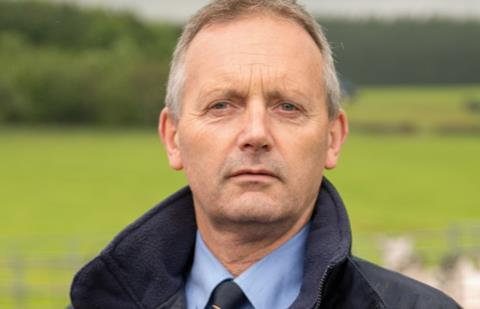The National Sheep Association (NSA) Cymru / Wales Region has submitted a detailed response to the Sustainable Farming Scheme (SFS) consultation in Wales, outlining "the urgent need for an overhaul to the current proposals and to recognise the value of Welsh food across the supply chain."

NSA chief executive Phil Stocker said: “[The] NSA is especially concerned that Welsh Government continues to force a proposed implementation date of 2025 for the SFS when there is not a detailed scheme proposal available that is fit for purpose or indeed any payment rates or modelling that can indicate any kind of business stability or future for the sector.
“It is hugely disappointing that Welsh Government believes farming businesses can adapt to such a significant change during the next nine months and again this demonstrates a complete lack of understanding of the farming industry. There is still no facility for commons, tenants, share farming, contract farming, graziers, cross border farms or new entrants within the scheme proposals.”
Welsh Government is looking at phasing in the SFS and phasing out BPS from January 2025.
NSA Cymru/Wales development officer Helen Roberts said: “It is incredibly worrying that the current modelling shows a significant contraction of the Welsh Agricultural industry, resulting in a major drop in breeding sheep, and significant reductions across sectors. The economic impact will be far reaching and significant across the wider supply chain and have severe impacts on rural and urban communities across the nation.
"There are severe impacts to the entire British supply chain not only for lamb but all food produce. Welsh Government has in the past encouraged and attracted investment into the largest employing sector in Wales (the food supply chain). There are now significant concerns that this contraction in the agriculture sector will not only limit investment in Wales, but also innovation whilst encouraging businesses to look elsewhere for opportunities.
“NSA continues to advocate for Welsh primary produce, renowned for its high environmental, welfare and health standards, a huge number of which are entrenched in law, to be at the heart of any future food, trade, health and environmental and farming policy.”

New proposals will "drain prosperity from the Welsh economy"
The British Meat Processors Association (BMPA) has also written to the Minister for Rural Affairs and North Wales, Lesley Griffiths to raise "deep concerns" about proposals in the consultation on the Sustainable Farm Scheme.
The meat industry trade body said that it believed SFS will damage the economy, reduce tourism, impact biodiversity and discourage future investment in Wales.
BMPA said: "By the Welsh Government’s own calculation, the new scheme will see 5500 jobs lost in agriculture, and see livestock production reduced by 122,000 livestock units, which is equivalent to 90% of the beef processing in Wales.
"The three major meat processors in Wales employ around 3000 people and contribute an estimated £1 billion to Welsh GDP. They’re also at the forefront of marketing the Welsh brand to a worldwide export market. So, such swingeing cuts to production will have a material impact on the Welsh economy in multiple ways."
According to the trade body, the proposed measures will put a major dent in the UK's domestic food security, whilst making the country more reliant on imported meat produced less sustainably in other parts of the world. It added: "Nor will the Sustainable Farm Scheme deliver the intended environmental benefits."
In his letter to the Minister, Nick Allen explained: “The carbon footprint of Welsh livestock production has already seen a massive reduction due to improving efficiencies in production, which has enabled a steady decline in livestock numbers over the years.
“Wales also has the near perfect combination of extensive pasture and rainfall to rear livestock. With the correct measures, such a livestock system can add to biodiversity and be part of the solution to both climate change and feeding a growing population.”
The BMPA said that until now its members have invested heavily in processing plants, supported by the Welsh Government. However, these new proposals have "thrown into question any future investment and, if introduced, will see money, jobs and prosperity drain from the Welsh economy."
It added: "We urge the Welsh Government to work with the farming unions and food manufacturers in Wales to find better solutions that prioritise food production and sustainability equally, and which offer the food industry and Welsh workers a brighter future."
This story was originally published on a previous version of the Meat Management website and so there may be some missing images and formatting issues.















